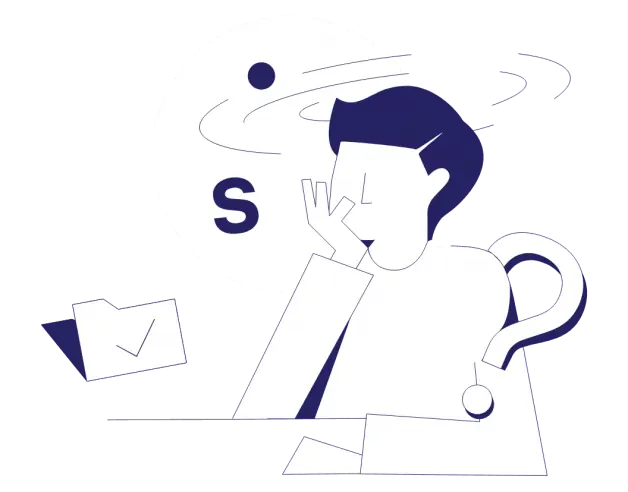
- 4-minute read
- 6th June 2022
Common Issues with Tenses
Using verbs correctly is one of the trickiest parts of writing. Anyone can make mistakes with verb tenses, but it’s especially easy for those who aren’t native English speakers. In this post, we’ll explain the nine main tenses and highlight the most common mistakes writers make when using them. So, read on if you want to make verb tense mistakes a thing of the past!
What Are the Main Tenses in English?
Every action happens in the past, present, or future. Each of these time frames is further divided into the simple, continuous, or perfect form. Here’s an example of each:
● Simple past – things that happened before now:
I wrote an essay last week.
● Past continuous – an ongoing action in the past:
He was writing a poem yesterday morning.
● Past perfect – an action that ended before a point in the past:
By lunchtime, he had written six lines.
● Simple present – a habitual action:
She writes at her desk by the window.
The simple present is also used to describe actions happening at this moment:
I want a desk like that.
● Present continuous – an ongoing action happening right now:
I am writing a future bestseller!
● Present perfect – an action that began in the past and is still happening now, or one that happened at an unspecified time:
He has written stories since he was a child.
I have written 1000 birthday cards.
● Simple future – things that’ll happen and then stop happening:
I will read the first chapter of the book tomorrow.
● Future continuous – things that’ll begin in the future and continue for some time:
I will be writing a book report.
● Future perfect – an action that’ll end at some point in the future:
I will have written it by the end of the week.
With so many tenses to choose from, it’s no wonder people make mistakes. Don’t worry, though, because for most academic writing, you don’t need to use all of them. Essays and assignments are nearly always written in the simple present tense, and if you’re describing your own research methodology (e.g., an experiment or survey), you would use the simple past tense.
What Are the Most Common Verb Tense Errors?
Mistakes with verb tenses usually fall into one of three categories:
- Changing from one tense to another.
- Overusing continuous tenses.
- Confusion with irregular verbs.
Use tenses consistently
Your readers will get confused if you switch tenses unexpectedly:
Find this useful?
Subscribe to our newsletter and get writing tips from our editors straight to your inbox.
The car drove into the tunnel, and it comes out the other end. ✘
The car drove into the tunnel, and it came out the other end. ✔
Or
The car drives into the tunnel, and it comes out the other end. ✔
This doesn’t mean changing tense mid-sentence is always wrong. But make sure you’re saying what you intend to say!
I practiced using different tenses, and now I understand them better. ✔
Limit your use of continuous tenses
Your writing can easily become quite clunky if you use a lot of continuous verb forms:
It was pouring rain while we were camping, and the children were complaining because their blankets were getting wet.
It poured rain while we were camping, and the children complained because their blankets got wet.
The first sentence contains four present participles (i.e., verb forms that end in ing), which makes it quite a chore to read and rather repetitive. In the second version, we’ve replaced three of them with the simple past tense. This makes the writing more concise and easier to read.
Watch out for irregular verbs
We form the simple past tense and the past participle of most verbs by simply adding ed to the base verb (e.g., walk – walked; open – opened). However, there are many verbs that don’t obey such rules, and we call these irregular verbs. Unfortunately, there’s no easy way to learn how to conjugate irregular verbs because they don’t follow an obvious pattern, as these examples show:
I buyed bought a gigantic jar of honey.
It costed cost $10.
I hided hid it in the back of the cupboard.
I soon forgetted forgot all about it.
As you read English texts and listen to people speaking in conversation, you’ll recognize more irregular verbs and become familiar with how they work.
Proofreading for Perfect Grammar
We hope you now feel confident about using different tenses in your writing. If you’d like an expert to check your work for incorrect verbs and any other mistakes in grammar, spelling, or punctuation, our proofreaders are here to help. Send us a free trial document to find out more.